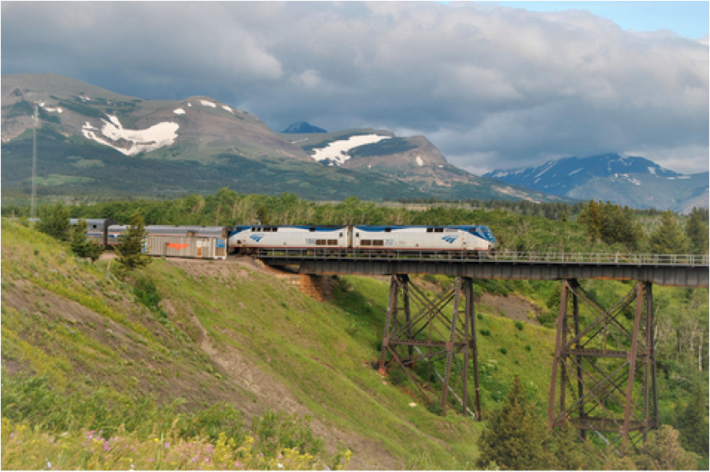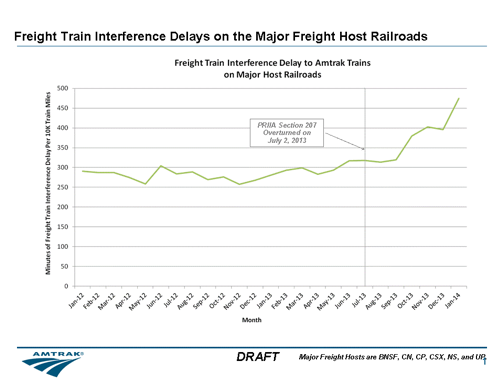
The Supreme Court has the chance to redeem its spotty record of late by making the trains run on time. Yes, it’s in their power.
If you’ve noticed lately that Amtrak trains have been more delayed and more run-down than usual, there’s a very good reason for that. Last year, the U.S. Court of Appeals for the D.C. Circuit ruled that Amtrak had too much authority to keep freight railroads in line. Most Amtrak trains outside of the Northeast Corridor run on tracks owned and operated by Class I freight railroads, meaning passenger trains can often get stuck behind freight trains that leave whenever their cargo is loaded, not on a schedule.
The 2008 Passenger Rail Investment and Improvement Act established that Amtrak, along with the FRA, could enter into mediation with the host railroads if they were keeping Amtrak from meeting an 80 percent on-time performance standard, and that the railroads could be forced to pay fines. Ever since Amtrak’s creation in 1970, freight railroads have been required to give passenger trains priority.
But Amtrak’s gray-area status between public entity and private corporation -- a “curious entity,” the appeals court called it -- got in the way. The Court of Appeals ended up ruling that insofar as Amtrak is a private company, it shouldn’t have a regulatory role -- especially if it’s then collecting the fines that the Class I railroads would have to pay as a result of that regulation.
The upshot of all that is that Amtrak has very little power left to negotiate with their hosts. And those hosts have taken advantage. Delay due to freight train interference is up 68 percent since the ruling.

And even the delays considered to be Amtrak’s fault are often the result of freight problems upstream. If a trip originated late because the train got to the station behind schedule due to freight delays down the line, that’s considered Amtrak’s fault. And those instances grew fivefold since the ruling.
On long-distance routes, trains are now more than half an hour late more than half the time. On the Empire Builder line between Chicago and the Pacific Northwest, only 21 percent of trains arrive on time. Even the Acela -- our country’s feeble brand of high-speed rail -- was on time just 74 percent of the time. As Christopher Ingraham wrote on Washington Post’s Wonkblog:
Amtrak's own performance standards, adopted just a few years ago, require the Acela to run with 95 percent on-time performance, and other routes to run between 85 and 90 percent on time. By that measure, all but one of Amtrak's routes are flunking their performance goals, most by a wide margin.
The result is predictable: Ridership is falling. After breaking ridership records 10 of the last 11 years, Amtrak is slipping. This June, ridership was down 4 percent from last June, even though gas prices are slightly higher.
The U.S. Supreme Court agreed in June to review the lower court’s ruling on Amtrak’s ability to hold Class I railroads accountable for on-time performance. The National Association of Railroad Passengers, which is filing an amicus brief on Amtrak’s behalf, calls it “one of the most important issues NARP has ever tackled.”





